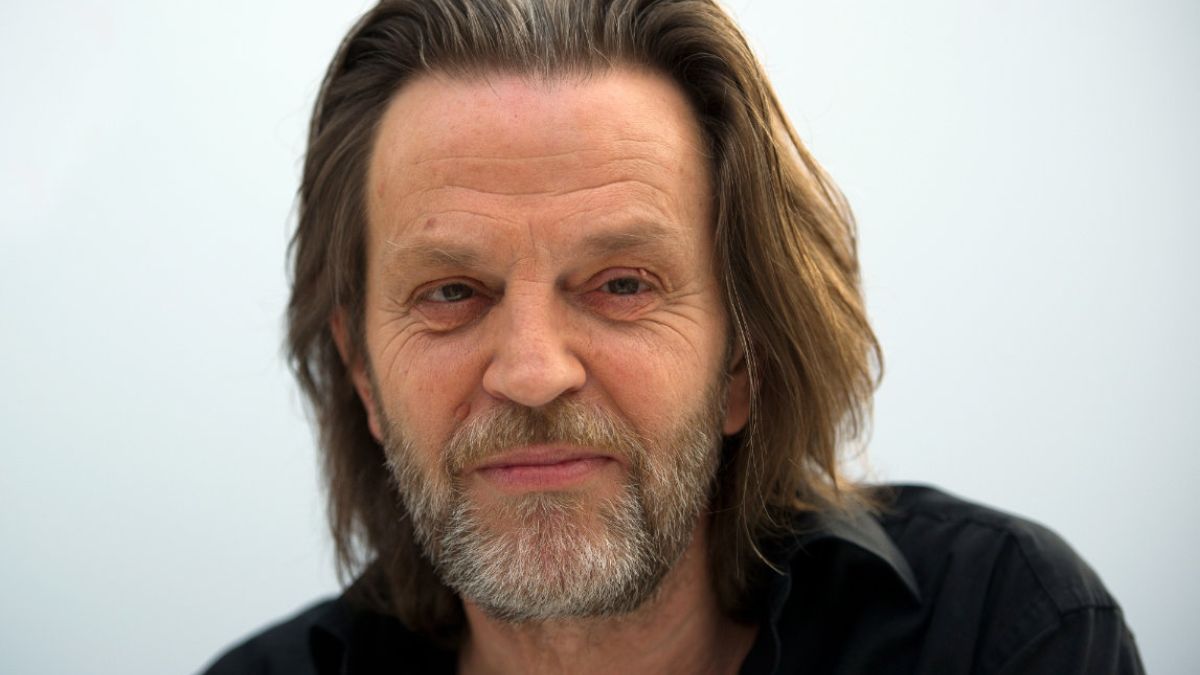It’s a shame when nature hasn’t given you any roots. Helge Timmerberg has been traveling the globe for four decades – and writing about it. Fortunately. Words may not be able to change the world, but they can describe it wonderfully well. At least those of this melancholic rock’n’roller.
Photo: picture alliance / dpa / Arno Burgi
Dear Helge. You are worth six lines to Wikipedia. A bad joke after 40 years on the road, of course. You spend your vacation at home on the sofa. Although, what does home mean? Marrakech, St. Gallen, Vienna or the check-in hall at the nearest airport? But you’re probably not looking for confirmation in a cyberspace encyclopedia either. They practically had to beat you to your Facebook account, you threw away your last cell phone years ago. You’re just someone of the caliber of Thompson, Wolfe or Lester Bangs, hacking away at the typewriter in hotel rooms from Vaduz to Vietnam, the editorial deadline at your back like a revolver. Initially at the Hessian Käseblatt, then over the decades for Bild, Zeit, Rolling Stone, Playboy and of course Tempo. Plus 13 books, gonzo novels, relationship guides and the story of your overland trip to India during the heyday of the European flower power movement, as a 17-year-old with 500 Deutschmarks in his pocket, a lot of green behind his ears and a bit in his lungs. Occasionally.
One of these books – the collection of anecdotes “Tiger fressen keine Yogis” (Piper, 2004) – was a revelation for me. A kind of New Testament of the reportage craft. Journalists, I used to think, are those sharp-witted smart alecks who dissect the world with a scalpel and surgeon’s gloves while they’re glued to their desks. At most, a drop of sweat runs down their foreheads when the air conditioning breaks down in summer. But you, Helge, come along with a machete and your sleeves rolled up. Someone who sometimes eats shit on his expeditions into the shadowy valleys of the fun society. Or at least wipes them away with the full pages of his notebook when the toilet paper runs out in India. Correspondence from the Gulf War? You stand on a roof terrace in Tel Aviv in the middle of a hail of bombs. An article about Viagra for an Austrian magazine? Yeah baby, pass me the Don Juan costume. You throw the blue ball without hesitation and see what happens (by the way: two Polish stewardesses pass).
You’ve done something similar with almost every substance that has somehow found its way to the surface of pop culture between Jimi Hendrix and Amy Winehouse: Prozac, MDMA – a pill tester on the side, so to speak. Because, as I read between your lines, experience is ultimately stronger than the most comprehensive research. A realization that a large part of the Google generation lacks. Of course, you hurt yourself sometimes. But the deepest scars, dear Helge, are under your sun-tanned skin. At one point – I think you’re sitting in a café in Venice – you compare your failed women’s stories to moving boxes, your whole cellar is full of them. In a more recent quote, you describe how you no longer trust the embrace of love and fear the knife in her hand. This is called pain memory. You’re 60 today, when every lifestyle editor has a real-time blog and Goa’s sandy beaches are covered with the bodies of stoned Russians, burnt as red by the sun as Lenin’s flags once were. Your hair, however, is still thick and long and with the gray stubble and the gentleness in your eyes you remind us of Jesus. Or the seller of the homeless magazine in front of the Turkish store. You like looking into the flames of the campfire and stroking your guitar, a bit hippie, Helge loves you! Approach people from Kreuzberg to Pattaya with sober impartiality.
And now you’ve finally been to Africa, or rather: followed a woman there. One who could be your daughter, purely in terms of age. But who are we to say that youth has nothing to do with age? “African Queen” is written on the book product of the trip, the subtitle promises: An adventure. There are two of them. On the one hand, of course, the crocodiles, shamans, the dilapidated propeller machines. In the Serengeti, you snuggle up in the cradle of mankind, encounter zebras (“LSD turned into fur”), giraffes and elephants. In Senegal, you try weed and voodoo (or rather, you are tried) and somewhere in between, malaria serenades your bones. And on the other hand, the Steppenwolf is traveling in pairs this time. Sometimes that’s nice. Most of the time it’s not that easy. Jealousy, uncertainty, emotional rollercoaster, the dynamics and conflicts when two strong characters collide. During the months on the Black Continent, you must have lost a few liters of sweat, lost your patience and your temper several times and even almost lost your mind once. But perhaps you have also found something: love. Or at least something like that.









